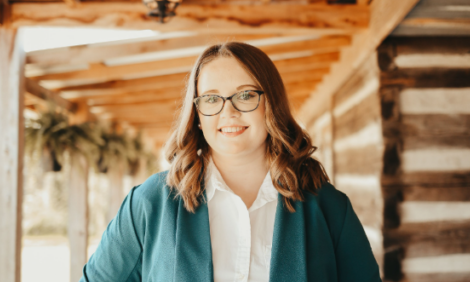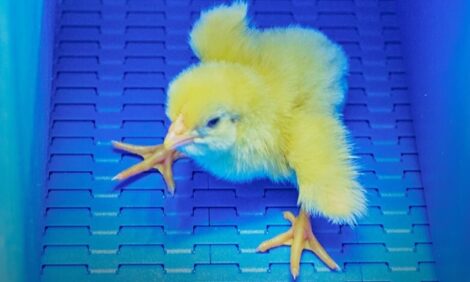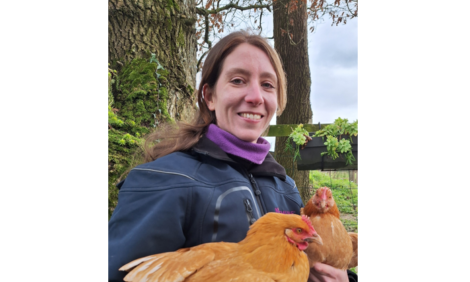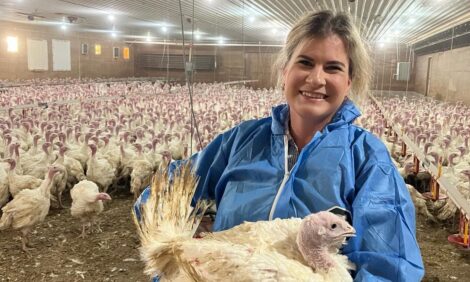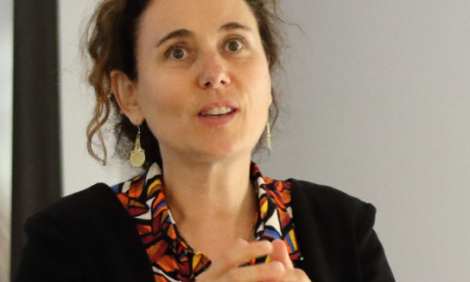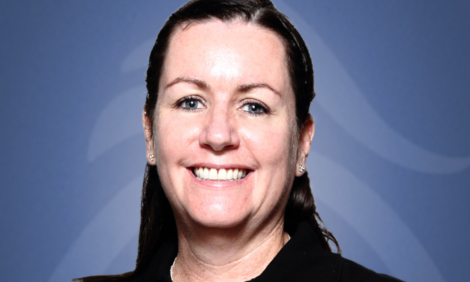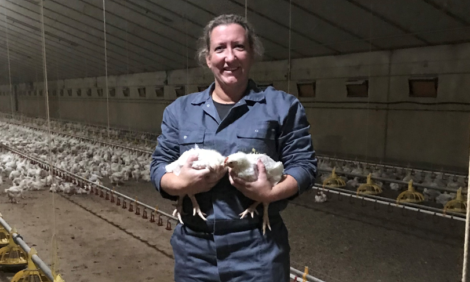



Women in Poultry: Princess Cortez
Learn more about Princess Cortez Technical Specialist and Lead Nutritionist at Hy-LinePrincess Cortez has been a Technical Specialist and Lead Nutritionist since 2021. In 2018, Ms. Cortez joined Hy-Line International as a Technical Service Specialist. Ms. Cortez conducts Hy-Line technical service activities in Southeast Asia, provides technical support for Hy-Line Parent Stock customers, and collects commercial flock performance data from the field. She also provides important feedback to the genetic research team for continual improvement of Hy-Line layers sold in Southeast Asia. Before joining Hy-Line International, Princess worked with a large agri-business company in the Philippines as Research and Development Officer for Poultry and Specialty products for nearly three years. Ms. Cortez earned her Bachelor’s degree in Animal Science, specializing in Poultry Nutrition, from the University of the Philippines Los Baños.
Describe a typical day in your current role?
When dealing with animal husbandry, I feel like every day is different. In my role, I experience different cultures, meet different kinds of people with different backgrounds, and see poultry production in different systems, climates, and management. This is what keeps me excited every day about my job. Each day is unique as we keep in touch with different layer producers of Southeast Asia region, we must make sure that we have continuous communication with our customers either on a farm or online to make sure we are always here for them to achieve the genetic potential of Hy-Line birds.
What’s unique about your role?
Driven by Hy-Line’s global but local initiatives, this role gives me insight into the pressure and challenges facing any poultry farmer on a daily basis, and this helped me develop strong problem-solving skills. I had the opportunity to travel to different countries of Southeast Asia and visit integrated operations from feed mills, hatcheries, and farms which has given me an understanding of the different challenges companies face overseas when dealing with poultry. It’s a very fulfilling job knowing that I am able to help the producers achieve good results based on the technical support that I provide. This role also serves as a bridge of knowledge for farm people to understand the how and why they do things in poultry farming which is very critical since they are the ones dealing with the birds every single day.
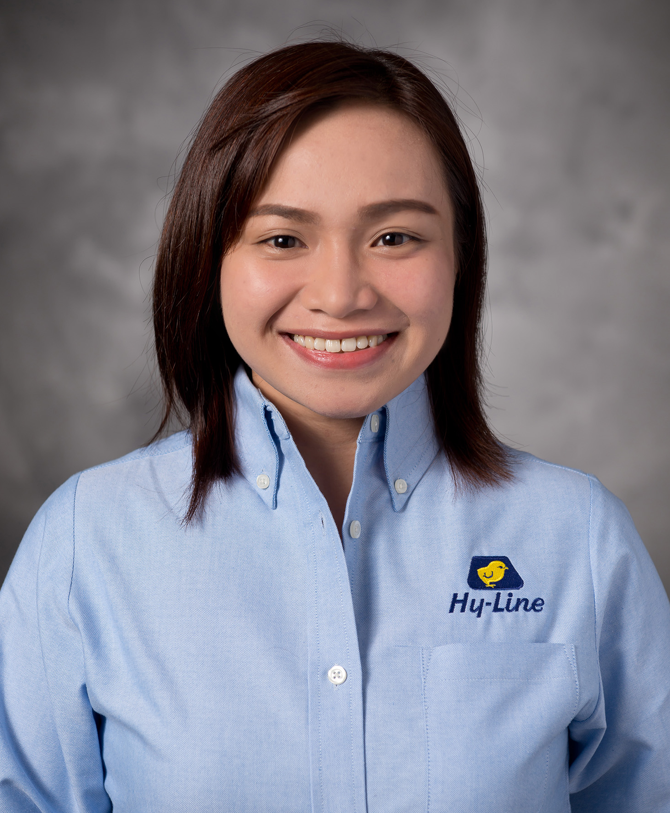
What are the main challenges that you face in your role?
The main challenge that I face in poultry production is the lack of recording in the farm. Working as a technical service, we cannot always do actual visits to each farm in different countries. Whenever I am troubleshooting, I normally rely on the data recording of the farm. Since many aspects of poultry operation combine to tell a complete story about a flock’s performance, accurate data recording is required to make a meaningful analysis of any flock’s performance. Sharing and analyzing at the farm level enables poultry companies to better understand their farm’s performance and profitability.
With this, Hy-Line invested in data farm intelligence we call the VisionEgg benchmarking program, which helps individual customers identify their strengths and areas of opportunity in their management. We collect as much data as possible from our customers, which we make sure all are confidential to analyze and give back information that helps them become more profitable, increase production, or reduce mortality. This also shows how data can be a powerful tool that encourages our producers to continue to value data recording more.
What does the future of poultry health look like in terms of preventing and treating disease?
In terms of the future of poultry health, proper management, biosecurity implementation, and vaccine technologies play a critical role. We need to continually educate our producers on this. The cooperation between farmers, veterinarians, industry companies, and government needs to be intensified for the better good. Improvements in laboratory diagnosis to help with early detection, more accurate diagnosis, surveillance, and monitoring programs will give us an edge on preventing diseases.
Are there individuals or organizations in poultry who you’ve found particularly inspirational?
I feel very fortunate to be part of the Hy-Line team that trusted and supported me to engage in a regional role which inspires me to do better and be passionate in contributing to the goal of feeding more people using a sustainable breed choice.
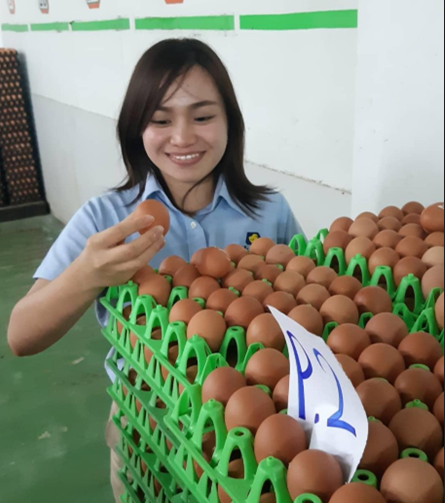
Have you encountered any challenges as a woman in your field? If yes, how have you overcome them?
I am the first woman to handle the role of technical services in the Southeast Asia region for Hy-Line International. I started in this regional role when I was 23 years old and since I am a young woman entering the world of poultry production, I see myself in a room where I am the only woman. There were doubts about my capabilities and professional experiences thus I felt that I beat up myself too much when I started! I felt like I needed to be ahead of everything and prove myself. What I learned from this experience is that I cannot have all the answers and I am not alone. I have my Hy-Line family behind me to support and guide me with this role. Now that I have overcome this challenge, I have built good relationships with my customers that help to continually add value to the company.
What outstanding challenge facing the poultry industry would you most like to solve?
Sustainability is one of the most outstanding challenges, not just in the poultry industry, since there are a lot of things going on in our environment that we need to act on so we can minimize the environmental impact while feeding more people with low-cost protein which Hy-Line as a company is committed to take part in.
What’s the most exciting innovation that you see on the horizon for the poultry industry?
Poultry farming has undergone vast advancements with different technology and smart farming equipment in different areas of poultry operations that help run the poultry farms smoothly and efficiently. Next-generation data management strategies for the farmers to adapt is something that I also look forward to.
What are you most excited about in the next 5-10 years regarding the poultry industry?
I’m excited to see how automation and human force find their balance. I also want to see how the poultry industry will grow bigger and better to support livelihoods around the globe.
What’s your next challenge?
I would like to continually broaden my knowledge in poultry farming, especially in poultry health, new farm technologies and equipment in different segments of poultry operations so that I can share this knowledge with our customers.







